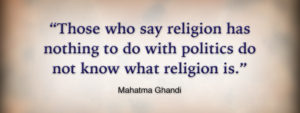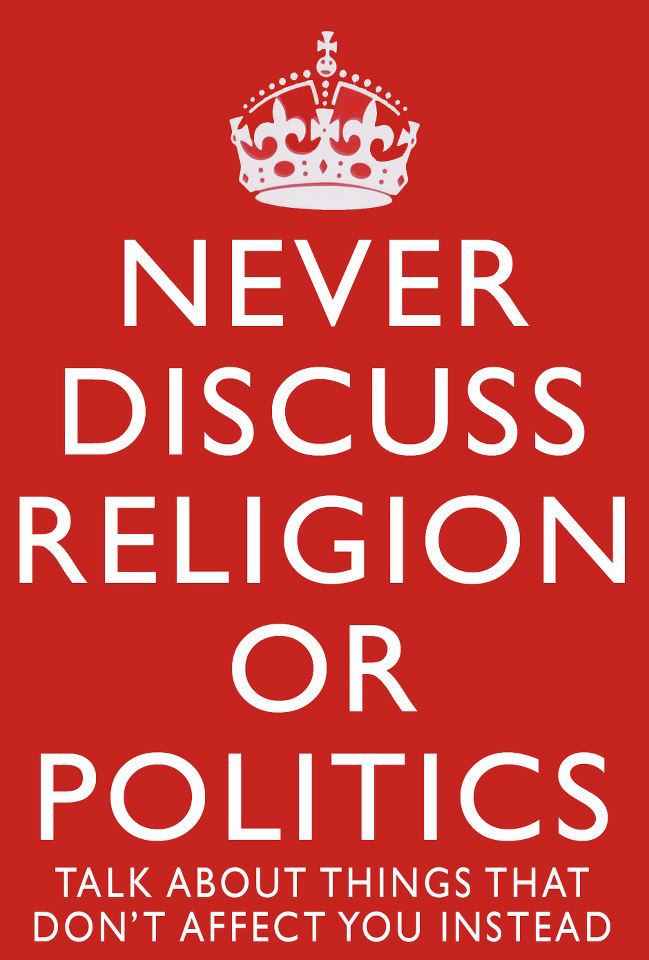Maybe it’s the time of the year, maybe it’s the roiling of political waves, maybe it’s having endured over ten days of weakness but today’s sermon is definitely different style with different emphasis and yet… it focus is on two very powerful women (Mary and Elizabeth).
The sermon text is below the sermon audio.
Sermon preached at Trinity Church, Newport RI
Sunday December 23 2018 8am
The Reverend Alan Neale
“Congress and/or Cathedral”
Perhaps some of you will be surprised (but I think not) that often clergy are adversely criticized because their sermons are too… political. Though the cynic in me suspects this translates as, “You don’t agree with me.”
In light of the avalanche of political happenings this week, I have been so tempted to look for some sandy burrow where I may hide my head (and if it’s spiritual, all the better).
There is a fear (a reasonable, rational fear) that the gospel will be distorted by secular values and ideologies. There is a fear (a reasonable, rational fear) that the eternal will be dissipated by the temporal, that our passports to heavenly places will be replaced by earthly visas that will fade and decay.
 But the demarcation of a realm called “politics”, which is to be kept separate from another realm, “religion”, is itself the fruit of an ideology that is alien to scripture. I am so often reminded of Lord George McLeod’s pithy comment that to God… “matter matters.” To believe that what happens in our DC Congress is separate from, should by untouched by, what happens in our DC Cathedral makes no sense to the readers of Scripture and the followers of Jesus.
But the demarcation of a realm called “politics”, which is to be kept separate from another realm, “religion”, is itself the fruit of an ideology that is alien to scripture. I am so often reminded of Lord George McLeod’s pithy comment that to God… “matter matters.” To believe that what happens in our DC Congress is separate from, should by untouched by, what happens in our DC Cathedral makes no sense to the readers of Scripture and the followers of Jesus.
The readings for this last Sunday of Advent (2018), as we teeter on the very brink of Christmas… the readings remind us, the “politicisation” of religion is present in the Bible, and particularly in Luke’s Gospel. For the Blessed Virgin Mary, as for the Hebrew prophets, the spiritual is not something wholly separate from the physical. The work of the Spirit transfigures, transforms our material relationships so that they embody the justice and compassion of God.
We cannot avoid this truth… the Magnificat speaks of this transfiguration: of the poor being “lifted up and filled with good things”, and the rich “sent away empty”. As Pope John Paul II wrote “From Mary, who in her Magnificat proclaims that salvation has to do with justice, there flows authentic commitment to the rest of humanity, our brothers and sisters, especially for the poorest and most needy, and to the transformation of society”.
The message of Micah and his fellow prophets has a political dimension: he denounces the faithlessness and injustice of the rulers of his day, and, like Mary, looks forward to their dethroning. The verses we heard this morning proclaiming that “Bethlehem of Ephrathah, one of the little clans of Judah”, will bring forth “one who is to rule in Israel, whose origin is from of old, from ancient days”, locates God’s decisive act of redemption in those whom the world disregards and despises.
Actually the amazing vision, the startling promise of Micah is that God will restore a remnant… a remnant composed of the marginalized (Carol Dempsey, New Collegeville Bible Commentary: Amos, Hosea, Micah, Nahum, Zephaniah, Habakkuk). This is fulfilled as God raises up his “lowly handmaiden” to bear his Word made flesh; the marginalized Mary (and Elizabeth) carelessly ditched to the edges of society (for no fault of their own)… these marginalized ones are carriers of life and hope to the world.
The poor are often talked about: sometimes to stigmatize, sometimes to support… but their own voices are rarely heard. But in Luke’s Gospel, these are the ones through whom God speaks and acts. The Magnificat declares the power of the poorest in history, both by its content and by the identity of its proclaimer.
I am relieved, encouraged to note that while the voice and vocation of the poorest is central to Luke’s account, it is God, always God who is the ultimate initiator. The Blessed Mary is the supreme example of discipleship. She shows each generation of Christians what it means to be receptive to God’s word and to mediate his grace; Mary speaks to me and you this morning and says… “Your vocation is to respond, to allow, to submit”. The Magnificat is not a call to work for justice in our own power, but a celebration of God’s saving work.
This does not render us passive spectators. In Mary, we see that receptivity to God involves courage and tenacity. In John Paul II’s words, “she is also a model, the faithful accomplisher of God’s will, for those who do not accept passively the adverse circumstances of personal and social life.”
Mary’s song is the fruit of a deep contemplation of the events in her life and the life of her aged cousin, and of the Hebrew scriptures. It draws heavily on the song of Hannah, who, like Elizabeth, was without child for many years (1 Samuel 2). But it is also full of phrases from the Psalms and the prophets. As St Bonaventure writes, the canticle “shows that the fulfilment of all promised blessings has come about, and therefore brings about the fulfilment of all praise and canticles”.
The Magnificat is both a song of rejoicing and a summons to struggle.
And just a little Advent starkness before the panoply of Christmas… our epistle reminds us, the body that is being nurtured in Mary’s womb will be nailed to the cross – a song of rejoicing and a summons to struggle .
Just as John the Baptist leaps to herald Jesus in the womb, so his execution will prefigure Jesus’s treatment at the hands of the religious and political authorities – a song of rejoicing and a summons to struggle.
The joy of the visitation will, in time, give way, not only to the pain of childbirth, but to the far greater pain — for Son and mother alike — of Calvary – a song of rejoicing and a summons to struggle
In the Easter victory, this world’s death-dealing powers are cast down, and the crucified one is exalted.
As Advent draws to a close, we look forward to the day when the whole creation is drawn into the fullness of that victory, we promise (as best we can) not to surrender nor dilute that hope and we resolve to look for the ways in which God calls us to work with Him.
AMEN (so be it).

